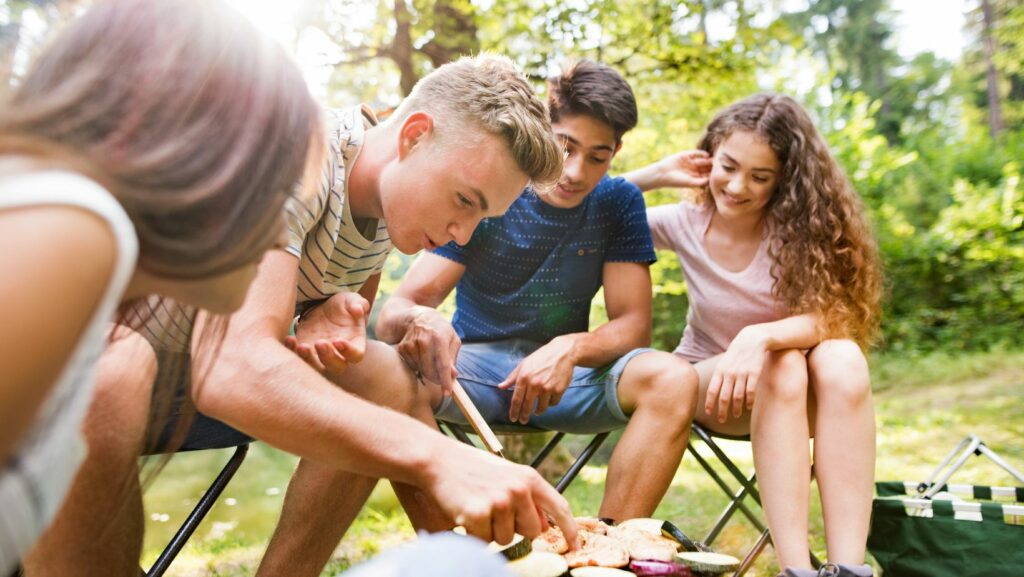Imagine a place where your child’s creativity meets culinary arts, and they’re having a blast while learning valuable life skills. Welcome to the exciting world of kids’ cooking camps! These unique programs blend fun with education, turning your little one into a budding chef before you know it.
From mastering the basics of kitchen safety to exploring exotic cuisines, kids’ cooking camps offer a smorgasbord of experiences. They’re not just about food preparation; they’re about nurturing independence, building confidence, and fostering a lifelong love of cooking. So, let’s dive into the flavorful and fascinating journey of kids’ cooking camps.
Kids Cooking Camp
The Rise of Culinary Programs for Children
Culinary programs for children, like kids cooking camps, have seen a surge in popularity. It’s a trend driven largely by parents’ increasing awareness of the importance of early culinary education. This boost in popularity correlates with a growing societal interest in food, wellness, and sustainable living. The rise also connects with realization that hands-on experiences in the kitchen contribute significantly to a child’s overall development. Cooking allows for the integration of various subject matters, such as mathematics, reading, and science, all while engaging the child’s senses and creativity.
Stories of culinary entrepreneurs, such as teenage chef Flynn McGarry opening a supper club in his parent’s home at age 12, have further ignited parents’ interest in these programs. Celebrities such as Jamie Oliver and Rachael Ray promoting child culinary engagement have also played a part in the growth of these programs. Media outlets have followed these developments closely, with an array of cooking shows and competitions designed for children popping up on TV screens around the world.
Benefits of Cooking Camps for Kids
Kids cooking camps offer a myriad of benefits. They are a place where children gain hands-on experience creating meals, allowing them to take an active role in their nutrition. A cooking camp provides an environment that fosters creativity and curiosity, teaching kids to experiment with different tastes, textures, and ingredients.
Moreover, these programs impact the child’s cognitive ability. Measuring ingredients builds mathematics skills. Reading recipes boosts literacy. Following sequential steps enhances understanding of logical order. Even the simple act of stirring develops fine motor skills. On a social level, cooking can instill values of team work, as kids often prepare meals in group activities.
In regard to health, cooking camps encourage healthy eating habits. When children create their own dishes, they are more likely to consume fresh and nutritious foods, decreasing their reliance on processed or fast food. This translates to long-term health-oriented behavior and combats common issues like childhood obesity.
Key Features of a Successful Kids Cooking Camp

Consider the characteristics that make a kid’s cooking camp successful, shining a spotlight on the importance of an engaging curriculum, rigorous safety measures, and qualified instructors.
An engaging curriculum serves as the cornerstone of any successful kids cooking camp. It’s crucial to customize the curriculum for specific age groups to ensure the content remains age-appropriate, fun and engaging. For example, younger kids, typically aged three to six, learn best through sensory exploration. Hence, the curriculum at their level might revolve around making simple, hands-on recipes, such as fruit salads or mini pizzas. On the other hand, older kids, aged seven to twelve, could dive deeper into culinary concepts, exploring recipe modification, complex techniques, and nutrition science. Moreover, these programs impact the child’s cognitive ability. Measuring ingredients builds mathematics skills. Reading recipes boosts literacy. Following sequential steps enhances understanding of logical order. Even the simple act of stirring develops fine motor skills. On a social level, cooking can instill values of team work, as kids often prepare meals in group activities.
Safety Measures and Hygienic Practices
Safety and hygiene practices form the backbone of any culinary education. Kids cooking camps must adopt stringent safety measures, equipping their kitchens with kid-friendly tools and ensuring constant supervision. Examples include using finger guards while chopping, non-slip mats to avoid spills, and kid-sized aprons for protection. Hygienic practices entail teaching children proper hand washing, wearing hair nets, using clean utensils, and safe food handling to deter cross-contamination.


